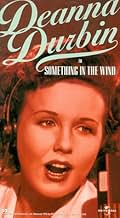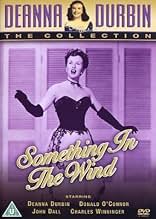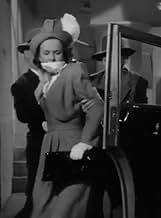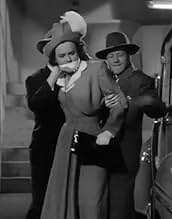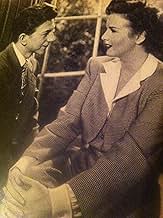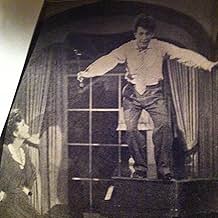Ajouter une intrigue dans votre langueA grandson of a recently deceased millionaire mistakes a beautiful female disc jockey for her aunt, who once dated the grandfather.A grandson of a recently deceased millionaire mistakes a beautiful female disc jockey for her aunt, who once dated the grandfather.A grandson of a recently deceased millionaire mistakes a beautiful female disc jockey for her aunt, who once dated the grandfather.
The Williams Brothers
- Singing Quartet
- (as The Four Williams Brothers)
Jacqueline deWit
- Fashion Show Saleslady
- (as Jacqueline de Wit)
Patricia Alphin
- Fashion Show Model
- (uncredited)
Polly Bailey
- Old Woman
- (uncredited)
William Bailey
- Mr. Belton's Assistant
- (uncredited)
Audrey Betz
- Women's Quartette Member
- (uncredited)
Stanley Blystone
- TV Station Guard
- (uncredited)
Betty Blythe
- Society Matron
- (uncredited)
June Bright
- Fashion Show Model
- (uncredited)
Ralph Brooks
- Radio Station Prompter
- (uncredited)
Avis en vedette
7tavm
After seeing her Three Smart Girls on the same DVD, I watched the other of Deanna Durbin's movies on it-this one, Something in the Wind. Made more than a decade after the previous one I mentioned, Ms. Durbin is no longer a young teen here but quite an alluring adult. She sings both her familiar opera songs and some more contemporary music of the time to fine effect. One of her costars is Donald O'Connor, just out of the military and doing his funny enough shticks-some of which may be familiar to modern viewers if they've seen Singin' in the Rain. Another of Ms. Durbin's costars one may be familiar with here is Charles Winninger-who I just watched play her father in TSG-playing Donald's Uncle Chester. No, she doesn't end up with Donald but the leading man named John Dall. Don't really want to reveal the plot which isn't really all that believable, just turn your brain off and enjoy Something in the Wind.
When Mary Collins strides out utterly confident on stage to sing, I had a momentary flashback to Ethel Merman in 1959 striding down the theater aisle and calling, "Sing out, Louise, sing out!" Mary Collins, I mean Deanna Durbin at 26, was a supremely confident actress and singer, and there are a few times when you wouldn't want to get in her way. Balancing that are things Merman didn't have...a warm personality, a lovely face, a smile that could win you over and a voice that wouldn't break your eardrums. Merman was an amazing, one-of-a-kind performer; so was Deanna Durbin. What they share is a perfect confidence in their talent.
With Something in the Wind, audiences were watching a romantic comedy with songs featuring a mature young woman they'd been in love with since she was 15. Alone among the child stars of the Thirties, Deanna Durbin grew up on screen while maintaining her stardom, her poise and her box office clout. Here, as Mary Collins, she's a disc jockey who discovers that her aunt who raised her, also named Mary Collins, had been receiving regular checks from a wealthy industrialist. They had once been in love but the marriage plans had been broken up by his family. The whole thing was platonic, but when the old man died his will stated that the financial arrangements must continue. But now the young scion of the family, Donald Read (John Dall), wants to stop the arrangement and pay Mary Collins off. He wants no scandal. He thinks our Mary has been his grandfather's friend. He doesn't realize our Mary has an aunt with the same name. Mary doesn't know what he's talking about but is furious at the implication. Donald is a prig and engaged to a well-bred socialite. His grandmother is a woman who believes breeding is all. His younger brother, Charlie (Donald O'Connor), is much more unconventional. After our Mary is kidnapped and at first kept at the Read family mansion until she agrees to the arrangement, we are in for over an hour of romantic mix- ups, complicated machinations, a perfect lawyer (blind and deaf), six songs by Durbin, three songs and comedy routines by O'Connor, and then true love finding a way. What does the movie add up to? For firm Deanna Durbin fans, a delight. For those who simply like her a lot, a mixed bag.
On the plus side are Durbin and O'Connor. One almost wishes they'd been the happy couple at the end. Durbin sings everything from a bit of Verdi to a down-and-dirty "You want to keep your baby lookin' right, doncha, Daddy?" Her personality shines through. She's funny and sincere. O'Connor is O'Connor and he's great. He has one number, "I Love a Mystery," which is almost a rehearsal for his "Make 'Em Laugh" routine in Singin' in the Rain. The songs, by Johnny Green and Leo Robin, are just fine, with two better than just fine numbers, "The Turntable Song" and "Something in the Wind." And one unexpected and stylishly handled bit features a cameo by Jan Peerce, the great American tenor who had a long career at the Met, as a singing jailer. Durbin is in the jail. It's not long before before they're sharing a duet from Il Trovatore and arguing about who stepped on whose obbligato.
But the movie begins to get tedious when the Mary Collins mix-up is finally discovered, love between Mary and Donald emerges and serious complications concerning proper family breeding sets in. Most problematic is John Dall as Donald Read, the stuffy hero who learns to love. Dall always seemed to me to be not only a limited actor but a man who, just as Lawrence Harvey always seemed genuinely unlikeable, always seemed genuinely artificial. He was unnerving as the artificially sincere killer-for-thrills in Rope a year later, but here he creates a big hole in the movie. He simply isn't interesting enough or strong enough to compete in the comedy or romance departments with Durbin.
With Something in the Wind, audiences were watching a romantic comedy with songs featuring a mature young woman they'd been in love with since she was 15. Alone among the child stars of the Thirties, Deanna Durbin grew up on screen while maintaining her stardom, her poise and her box office clout. Here, as Mary Collins, she's a disc jockey who discovers that her aunt who raised her, also named Mary Collins, had been receiving regular checks from a wealthy industrialist. They had once been in love but the marriage plans had been broken up by his family. The whole thing was platonic, but when the old man died his will stated that the financial arrangements must continue. But now the young scion of the family, Donald Read (John Dall), wants to stop the arrangement and pay Mary Collins off. He wants no scandal. He thinks our Mary has been his grandfather's friend. He doesn't realize our Mary has an aunt with the same name. Mary doesn't know what he's talking about but is furious at the implication. Donald is a prig and engaged to a well-bred socialite. His grandmother is a woman who believes breeding is all. His younger brother, Charlie (Donald O'Connor), is much more unconventional. After our Mary is kidnapped and at first kept at the Read family mansion until she agrees to the arrangement, we are in for over an hour of romantic mix- ups, complicated machinations, a perfect lawyer (blind and deaf), six songs by Durbin, three songs and comedy routines by O'Connor, and then true love finding a way. What does the movie add up to? For firm Deanna Durbin fans, a delight. For those who simply like her a lot, a mixed bag.
On the plus side are Durbin and O'Connor. One almost wishes they'd been the happy couple at the end. Durbin sings everything from a bit of Verdi to a down-and-dirty "You want to keep your baby lookin' right, doncha, Daddy?" Her personality shines through. She's funny and sincere. O'Connor is O'Connor and he's great. He has one number, "I Love a Mystery," which is almost a rehearsal for his "Make 'Em Laugh" routine in Singin' in the Rain. The songs, by Johnny Green and Leo Robin, are just fine, with two better than just fine numbers, "The Turntable Song" and "Something in the Wind." And one unexpected and stylishly handled bit features a cameo by Jan Peerce, the great American tenor who had a long career at the Met, as a singing jailer. Durbin is in the jail. It's not long before before they're sharing a duet from Il Trovatore and arguing about who stepped on whose obbligato.
But the movie begins to get tedious when the Mary Collins mix-up is finally discovered, love between Mary and Donald emerges and serious complications concerning proper family breeding sets in. Most problematic is John Dall as Donald Read, the stuffy hero who learns to love. Dall always seemed to me to be not only a limited actor but a man who, just as Lawrence Harvey always seemed genuinely unlikeable, always seemed genuinely artificial. He was unnerving as the artificially sincere killer-for-thrills in Rope a year later, but here he creates a big hole in the movie. He simply isn't interesting enough or strong enough to compete in the comedy or romance departments with Durbin.
Those who know DD from her "little Miss fixit" movies of the 1930s will be very surprised by this film. She is now an adult, styled very much to look like an even more attractive Gale Storm, and she turns out to be both a very fine actress in romantic comedy and, low and behold, one very sexy singer. Her performance of "Thank you Daddy" is right up there with Rita Hayworth's classic Gilda performance. Frankly, she is far more interesting in this movie, at least to an adult male, than she was in those cute 1930s movies.
Donald O'Conner is also VERY good in this movie. "I love a mystery" is, indeed, a harbinger of what he will do, that much better, in Singing in the Rain. It's not at that level, but it's very good.
The character actors and actresses all deliver fine performances.
And Jan Peerce as the jail keep is not to be missed. I grew up on his recordings, when he and Tucker were the two great American tenors. Believe me folks, he was indeed great, the equal of any of his European contemporaries. He does the "Miserere" with DD here, and it's good. Interestingly, she does not take the alternate high note in the last repeat, as was customary in those days and as Kitty Carlile (sp?) does in A Night at the Opera (and Rosa Ponselle does in her recording with Caruso). It's great to have a chance to see Peerce again "live."
The weak elements here are the male romantic lead, as noted by other reviewers, who is a dud, and the music. If this had had a score as memorable as some of Judy Garland's movies of the same era, it would be as memorable as those. DD does a remarkable job with what she's given, but in terms of music, she isn't given much.
I like the teenage DD movies. They're fun. But this shows that DD was better as an adult than as a child star, and that's staying a lot.
------------------------------
I watched this again tonight, and really enjoyed it. Durbin really is more interesting as an adult than as a child star. And she really does a bang-up job of "Thank you Daddy." On second viewing, it's less Rita Hayworth in Gilda than Mary Martin in one of her "My Heart Belongs to Daddy" numbers.
The things that keep this from being a great movie have been pointed out by others: the script is weak, the music, though it several times comes close to being memorable, never really is; and the leading man has no chemistry at all. Durbin does a great job with mediocre material, as does O'Connor, but that won't make a silk purse out of a piglet's ear.
Donald O'Conner is also VERY good in this movie. "I love a mystery" is, indeed, a harbinger of what he will do, that much better, in Singing in the Rain. It's not at that level, but it's very good.
The character actors and actresses all deliver fine performances.
And Jan Peerce as the jail keep is not to be missed. I grew up on his recordings, when he and Tucker were the two great American tenors. Believe me folks, he was indeed great, the equal of any of his European contemporaries. He does the "Miserere" with DD here, and it's good. Interestingly, she does not take the alternate high note in the last repeat, as was customary in those days and as Kitty Carlile (sp?) does in A Night at the Opera (and Rosa Ponselle does in her recording with Caruso). It's great to have a chance to see Peerce again "live."
The weak elements here are the male romantic lead, as noted by other reviewers, who is a dud, and the music. If this had had a score as memorable as some of Judy Garland's movies of the same era, it would be as memorable as those. DD does a remarkable job with what she's given, but in terms of music, she isn't given much.
I like the teenage DD movies. They're fun. But this shows that DD was better as an adult than as a child star, and that's staying a lot.
------------------------------
I watched this again tonight, and really enjoyed it. Durbin really is more interesting as an adult than as a child star. And she really does a bang-up job of "Thank you Daddy." On second viewing, it's less Rita Hayworth in Gilda than Mary Martin in one of her "My Heart Belongs to Daddy" numbers.
The things that keep this from being a great movie have been pointed out by others: the script is weak, the music, though it several times comes close to being memorable, never really is; and the leading man has no chemistry at all. Durbin does a great job with mediocre material, as does O'Connor, but that won't make a silk purse out of a piglet's ear.
Most of the reviewers before mine here have nailed this film, with little difference in most ratings. It is really a bad plot with an even worse screenplay. That is for the story with the young Mary Collins getting kidnapped by the descendants of the wealthy Read patriarch who recently died. The comedy writers must have been on strike, because silly and dopey plots at times have been saved by at least some witty and funny dialog. But this film's script is dull as well as dumb.
It's too bad, because those were the days before Universal was a major studio, and it really did owe its survival to Deanna Durbin. As others have noted, had the studio provided quality scripts and roles for Durbin, she likely would not have walked away from Hollywood and a film career in her late 20s. And movie fans of the 20th century and beyond could have had some more memorable movies - perhaps musicals, to enjoy.
But, even as weak and poor as the plot was, this film didn't flop at the box office. Durbin considered it a dud, and while it wasn't a big hit, fans still turned out for the musical show. And that's truly what saves this film and even earns it a high mark from me - at 7, because of the very good song and dance numbers. Durbin sings several songs, including her hit tune, "Round 'n Round 'n Round" (the Turntable Song), and Donald O'Connor gives a dazzling performance of "I Love a Mystery." For as good as Durbin's singing is with popular music, the routine that helps put this film over just for its musical showcase is the duet she sings with Metropolitan Opera singer and star Jan Peerce - an aria from "Il Travatore."
I am one of those fans who enjoys the good and great musicals of the past. And, I too would like to have seen more films with Deanna Durbin. She not only had a superb voice, but she was a very good actress, especially in comedy. It's a stretch to rate this movie a 7 for the plot and screenplay overall, but the music and dance are exceptional for a musical revue film, and the stars are deserving at least.
Here are some lines that show the level of comedy in this goofy plot
Orchestra leader at the Fashion Show, after a fanfare, announces "And now for our new collection of evening gowns. These gowns are designed to ensure that large amounts of money change hands. The fainthearted are advised not to look."
Mary Collins, "Why, you old crook." Uncle Chester Read, "Heh, at your service, my dear."
Mary Collins, "Would you swindle your own flesh and blood?" Uncle Chester, "It's ever so more simple than swindling strangers."
It's too bad, because those were the days before Universal was a major studio, and it really did owe its survival to Deanna Durbin. As others have noted, had the studio provided quality scripts and roles for Durbin, she likely would not have walked away from Hollywood and a film career in her late 20s. And movie fans of the 20th century and beyond could have had some more memorable movies - perhaps musicals, to enjoy.
But, even as weak and poor as the plot was, this film didn't flop at the box office. Durbin considered it a dud, and while it wasn't a big hit, fans still turned out for the musical show. And that's truly what saves this film and even earns it a high mark from me - at 7, because of the very good song and dance numbers. Durbin sings several songs, including her hit tune, "Round 'n Round 'n Round" (the Turntable Song), and Donald O'Connor gives a dazzling performance of "I Love a Mystery." For as good as Durbin's singing is with popular music, the routine that helps put this film over just for its musical showcase is the duet she sings with Metropolitan Opera singer and star Jan Peerce - an aria from "Il Travatore."
I am one of those fans who enjoys the good and great musicals of the past. And, I too would like to have seen more films with Deanna Durbin. She not only had a superb voice, but she was a very good actress, especially in comedy. It's a stretch to rate this movie a 7 for the plot and screenplay overall, but the music and dance are exceptional for a musical revue film, and the stars are deserving at least.
Here are some lines that show the level of comedy in this goofy plot
Orchestra leader at the Fashion Show, after a fanfare, announces "And now for our new collection of evening gowns. These gowns are designed to ensure that large amounts of money change hands. The fainthearted are advised not to look."
Mary Collins, "Why, you old crook." Uncle Chester Read, "Heh, at your service, my dear."
Mary Collins, "Would you swindle your own flesh and blood?" Uncle Chester, "It's ever so more simple than swindling strangers."
Deanna Durbin was at the peak of her vocal abilities on screen by the time she made SOMETHING IN THE WIND and fortunately she has some pleasant and frequent musical interludes sprinkled throughout what is essentially a feeble plot.
She's once again up to her neck in a plot relying heavily on mistaken identity and pretending to be someone she's not. Her leading men are Donald O'Connor and John Dall, the latter being her love interest in a somewhat wooden performance. O'Connor tends to over exert himself in some rambunctious musical numbers while Deanna not only sings some lively numbers but also joins Jan Peerce, tenor of the Metropolitan Opera, for an operatic aria.
Obviously the film was designed to give Deanna a new and more glamorous look and wardrobe and some popular melodies to sing rather than the usual operatic or semi-classical numbers. Unfortunately, the plot is no more adult than her "little Miss Fix-it" fluff earlier in her career. But she looks wonderful and is in extremely good voice for all of her vocals. A pleasant and diverting experience for true Deanna Durbin fans.
She's once again up to her neck in a plot relying heavily on mistaken identity and pretending to be someone she's not. Her leading men are Donald O'Connor and John Dall, the latter being her love interest in a somewhat wooden performance. O'Connor tends to over exert himself in some rambunctious musical numbers while Deanna not only sings some lively numbers but also joins Jan Peerce, tenor of the Metropolitan Opera, for an operatic aria.
Obviously the film was designed to give Deanna a new and more glamorous look and wardrobe and some popular melodies to sing rather than the usual operatic or semi-classical numbers. Unfortunately, the plot is no more adult than her "little Miss Fix-it" fluff earlier in her career. But she looks wonderful and is in extremely good voice for all of her vocals. A pleasant and diverting experience for true Deanna Durbin fans.
Le saviez-vous
- AnecdotesDonald O'Connor's first movie after returning from service in World War II.
- Citations
Orchestra Leader at Fashion Show: And now for our new collection of evening gowns. These gowns are designed to ensure that large amounts of money change hands. The fainthearted are advised not to look.
Meilleurs choix
Connectez-vous pour évaluer et surveiller les recommandations personnalisées
- How long is Something in the Wind?Propulsé par Alexa
Détails
- Date de sortie
- Pays d’origine
- Langue
- Aussi connu sous le nom de
- For the Love of Mary
- Lieux de tournage
- société de production
- Consultez plus de crédits d'entreprise sur IMDbPro
- Durée1 heure 34 minutes
- Couleur
- Rapport de forme
- 1.37 : 1
Contribuer à cette page
Suggérer une modification ou ajouter du contenu manquant

Lacune principale
By what name was Something in the Wind (1947) officially released in Canada in English?
Répondre
